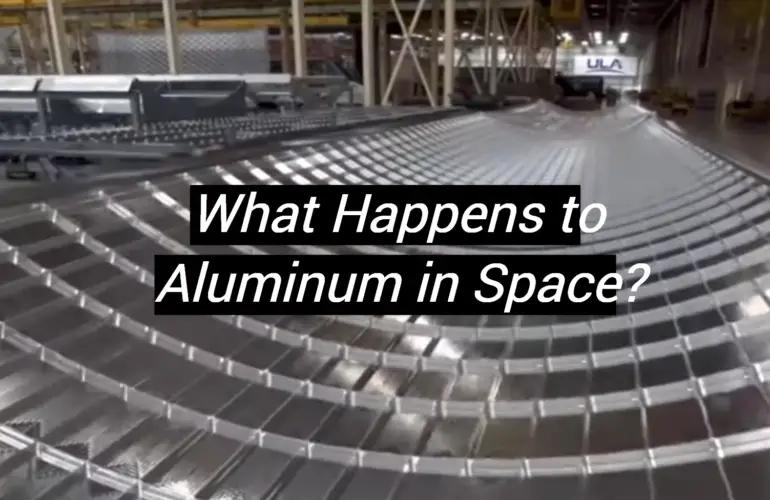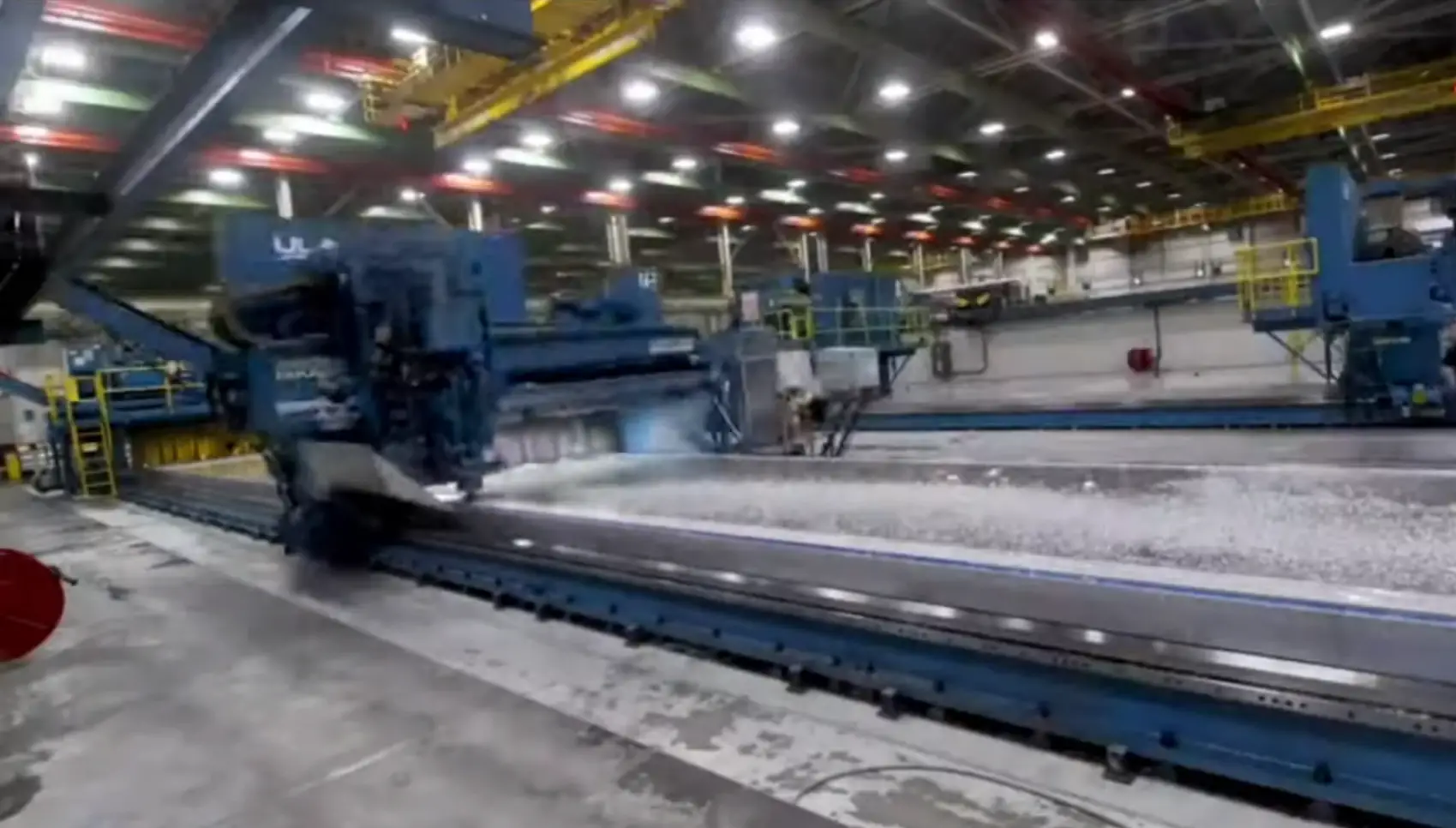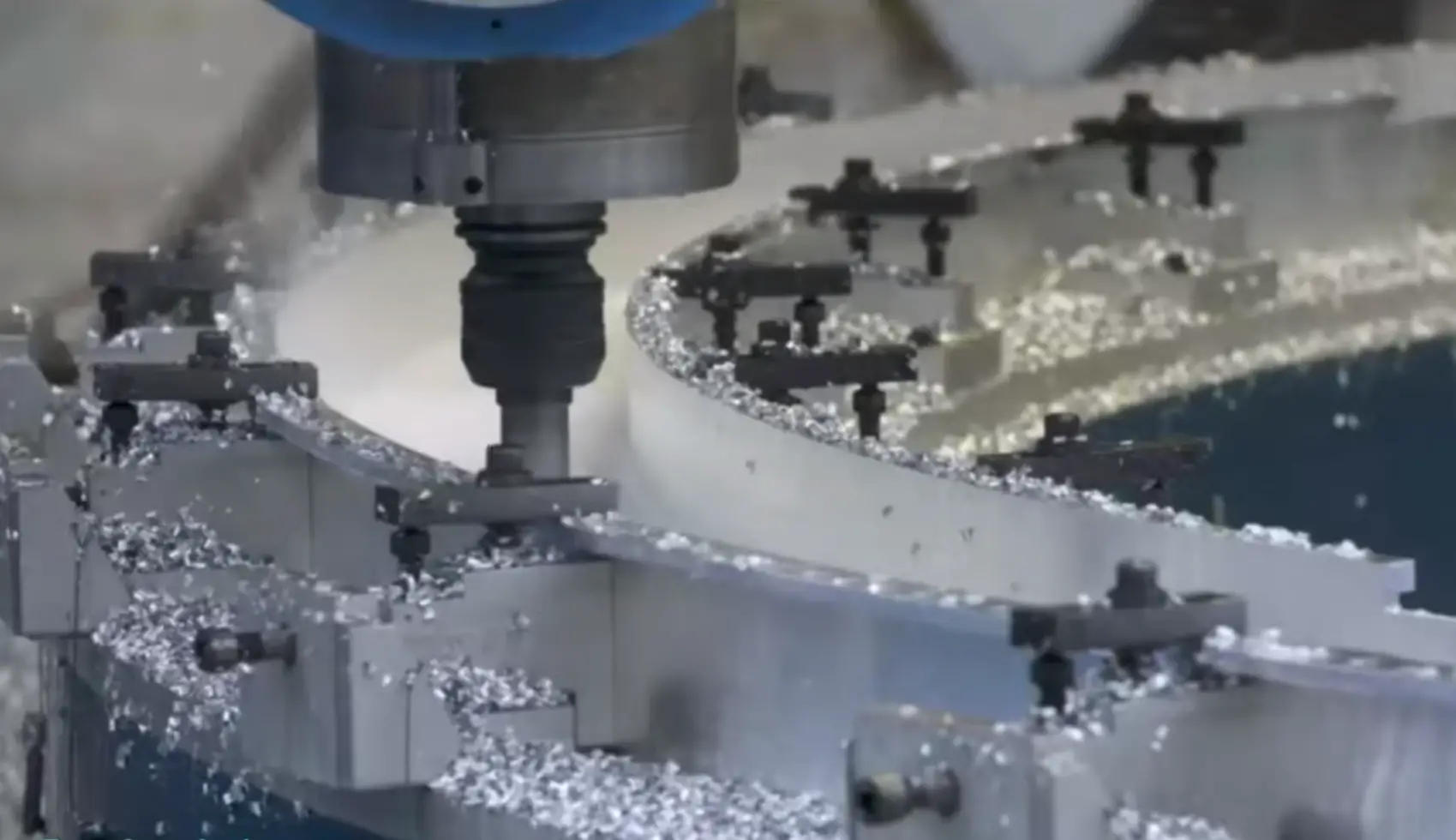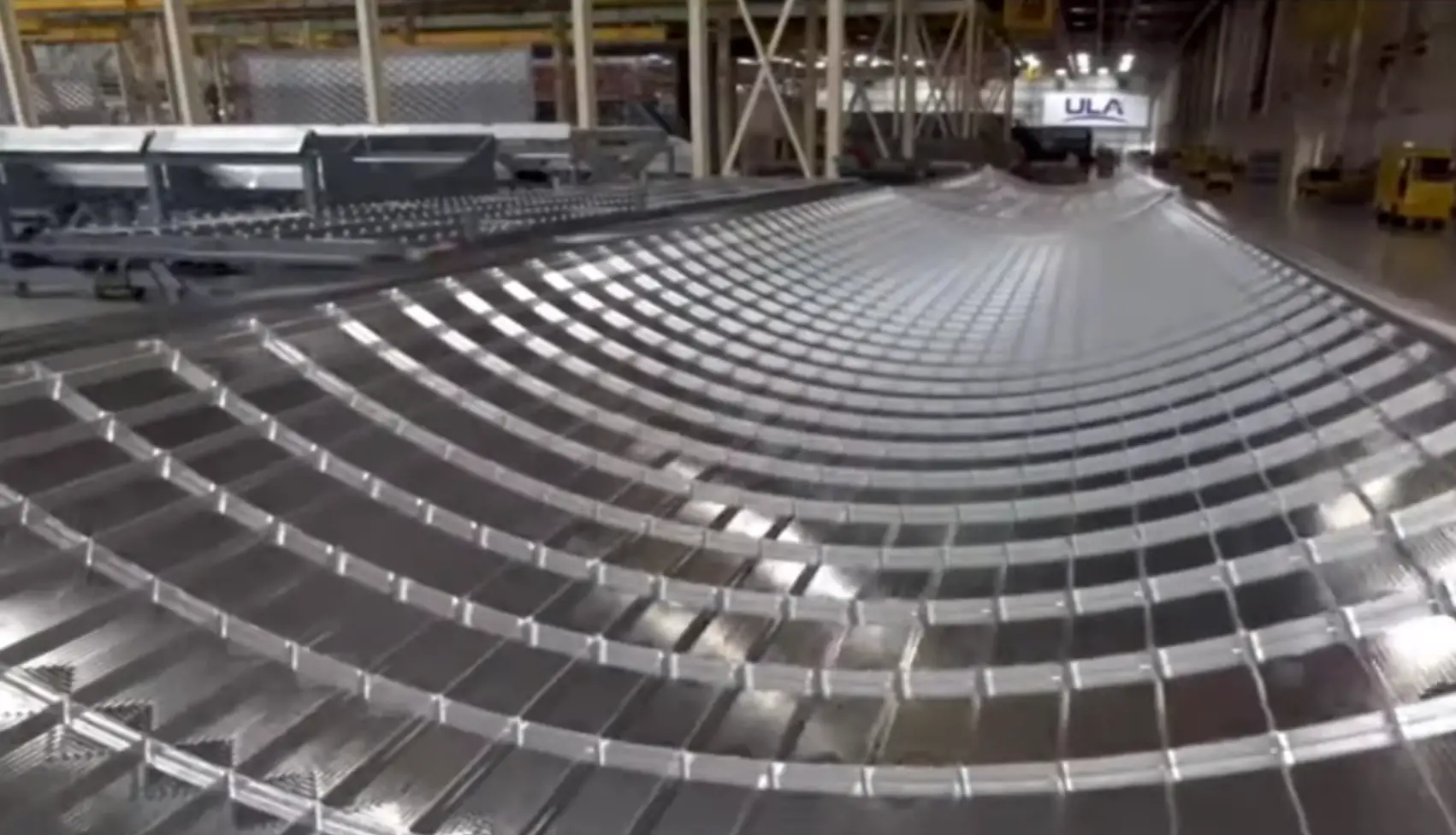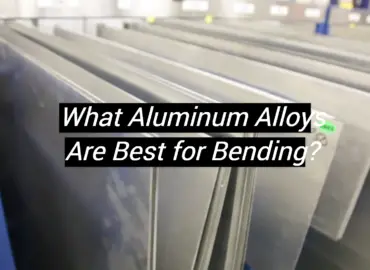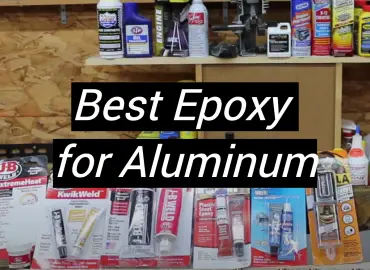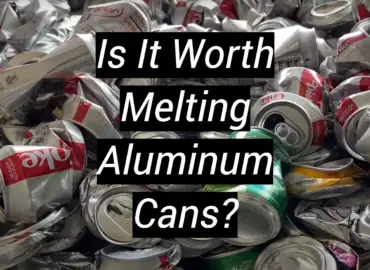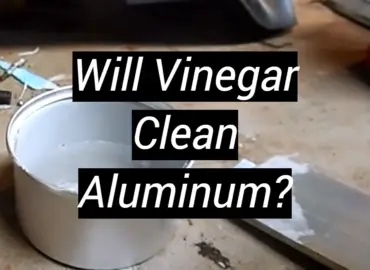Have you ever wondered what happens to metal in space when it is exposed to extreme temperatures, radiation, and vacuum? We all know that space is a hostile environment that can wreak havoc on anything, but what about aluminum? As one of the most widely used metals in the aerospace industry, aluminum is vital in building satellites, rockets, and other spacecraft. But how does it behave in space? In this blog post, we will explore the fascinating world of aluminum in space and discover why this metal is so important for space exploration.
Does Metal Corrode in Space?
To understand how metal behaves in space, we should first look at what corrosion means. Corrosion is a chemical process that results in the breakdown of a material with the presence of a catalyst. Common catalysts for corrosion are oxygen and water, which lead to the creation of a chemical reaction. It’s a common problem in the aviation industry, where high-altitude flights encounter water vapor in the atmosphere, leading to the corrosion of airplane parts. [1]
However, space is a completely different environment than our atmosphere. The lack of atmospheric gasses in space, especially oxygen, does indeed prevent traditional corrosion caused by oxygen. But that’s not the end of the story yet because corrosion isn’t just limited to oxygen. Spacecraft materials, such as aluminum or stainless steel, can corrode due to interactions with other elements in the vacuum of space, such as solar radiation, plasma streams, and atomic oxygen.
It’s important to note, however, that metal corrosion in space is not the same as corrosion we usually witness on metals on earth. The process of corrosion in space is different as it occurs at a slow and steady pace. Spacecraft materials, too, are coated with a thin layer of protective material that can help protect them from corrosion. Even materials such as gold and platinum, which are naturally resistant to corrosion, can corrode in space due to the harsh environment.
Usage of Aluminum in Modern Spacecraft
Over the years, there has been a lot of interest in modern spacecraft technology. The materials used in modern spacecraft play a crucial role in enhancing their functionality, efficiency, and durability. While various materials are used, one that stands out from the rest is Aluminum. It is not only lightweight but also sturdy, which makes it ideal for various spacecraft applications.
In spacecraft technology, durability is everything. The durability of materials used is what determines the lifespan of the spacecraft. Aluminum offers excellent durability properties, standing up well to extreme temperature fluctuations, radiation, and cosmic dust. With its excellent strength-to-weight ratio, it is no wonder that Aluminum is the preferred material for spacecraft exteriors.
It is a lightweight metal that is widely used in spacecraft technology. The low weight of Aluminum means that it is easy to transport spacecraft into orbit, requiring less fuel and energy. Every extra pound of weight means more fuel, which can seriously affect the spacecraft’s functionality. The use of lightweight Aluminum alloys has gone a long way in reducing the weight of spacecraft and making space missions more energy-efficient.
Spacecraft technology must deal with significant temperature fluctuations while in operation. Because of this, it must have an effective thermal management system. Aluminum is an excellent conductor of heat, meaning that it can effectively distribute heat evenly throughout the spacecraft. This leads to reduced warping, cracking, and damage caused by temperature changes.
Design flexibility is another advantage of Aluminum in spacecraft technology. Aluminum’s flexibility allows it to be easily formed into different sizes and shapes, making it easy to customize its application in modern spacecraft. This enhances design flexibility, allowing designers to create spacecraft with different shapes and sizes to meet various project needs.
Hazards of Space
Space travel has captured the imaginations of many, from movies like Star Wars to the real-life feats of astronauts. But the challenges and dangers of space should not be overlooked. There are many hazards of space, including radiation, extreme temperatures, space debris, and launch and re-entry. These hazards not only put the lives of astronauts at risk but also affect the technology and equipment necessary for space travel.
Radiation
One of the biggest hazards of space is radiation. Exposure to harmful radiation in space can cause a range of health problems, including cancer, cardiovascular disease, and damage to the central nervous system. The Earth’s atmosphere protects us from most of this radiation, but in space, there is little protection. Astronauts on the International Space Station are exposed to 10 times more radiation than those on Earth. To mitigate this risk, astronauts wear special clothing and conduct radiation monitoring throughout their missions.
Fluctuations between heat and cold
Another hazard of space is the extreme fluctuations between hot and cold temperatures. On the sun-facing side of a spacecraft, the temperature can reach up to 250 degrees Fahrenheit; on the dark side, it can plummet to negative 250 degrees. These rapid temperature changes can damage equipment and make it difficult for astronauts to maintain a comfortable living environment. Spacesuits and spacecraft are insulated to protect from these extreme temperatures.
Space debris
Space debris, including meteoroids, old satellites, and other man-made objects, pose a significant hazard to astronauts and spacecraft. Even small debris can cause significant damage if it collides with a spacecraft or spacesuit. NASA and other space agencies track debris to avoid potential collisions and design spacecraft to withstand potential impact. In 2019, India conducted a missile test that created a significant amount of debris, causing concern for the safety of astronauts and satellites.
Launch and re-entry
The launch and re-entry phases of space travel are also hazardous. The intense acceleration of rocket launches can put significant strain on the body, potentially causing injury or even loss of consciousness. During re-entry, the spacecraft experiences intense friction, generating temperatures up to 3,000 degrees Fahrenheit. This heat can damage the spacecraft, making it difficult to control. Astronauts must wear special suits and undergo extensive training to prepare for these phases of space travel.
As space travel becomes more commonplace, it is imperative to continue researching and developing methods to mitigate these hazards. Through innovation and dedication, we can continue to explore and learn about our universe, while keeping astronauts safe and technology functioning properly.
Aluminum Alloys in the Aerospace Industry
The aerospace industry is one of the most challenging but rewarding fields in the engineering world. Aircraft designing requires engineers to craft lightweight planes that can withstand high altitudes, turbulence, wind shear, and other weather conditions. With all these requirements, materials play a significant role in building the best aircraft. One of the most critical materials used in the aerospace industry is aluminum and its alloys.
Aluminum alloys are a combination of aluminum and other metals, including copper, magnesium, zinc, and silicon. These added metals or elements give aluminum its distinctive properties. For instance, aluminum alloy 6061 contains magnesium and silicon, which makes it resistant to corrosion and highly weldable. Engineers primarily use aluminum alloys due to their high strength-to-weight ratio, durability, and corrosion resistance. [3]
Performance of aluminum alloys in aerospace applications
Aluminum alloys are incorporated into different aerospace components, including wings, fuselage, and even landing gear. In aerospace applications, aluminum alloys must perform under various conditions, including extreme temperatures, loads, mechanical stress, and fatigue. For instance, aluminum alloy 2024, which contains copper, is used in the production of wing skins due to its high strength. On the other hand, aluminum alloy 7075 is used in high-stressed applications due to its high tensile strength, fatigue resistance, and corrosion resistance.
Advantages of using aluminum alloys in aerospace
One of the advantages of aluminum alloys in aerospace is its lightweight properties. As we know, the weight of an aircraft affects the fuel consumption and performance. Since aluminum alloys are lightweight, it reduces the aircraft’s weight, providing better fuel efficiency and performance. Besides that, aluminum alloys are also highly resistant to corrosion, making it suitable for long-duration flights, and can withstand exposure to atmospheric conditions.
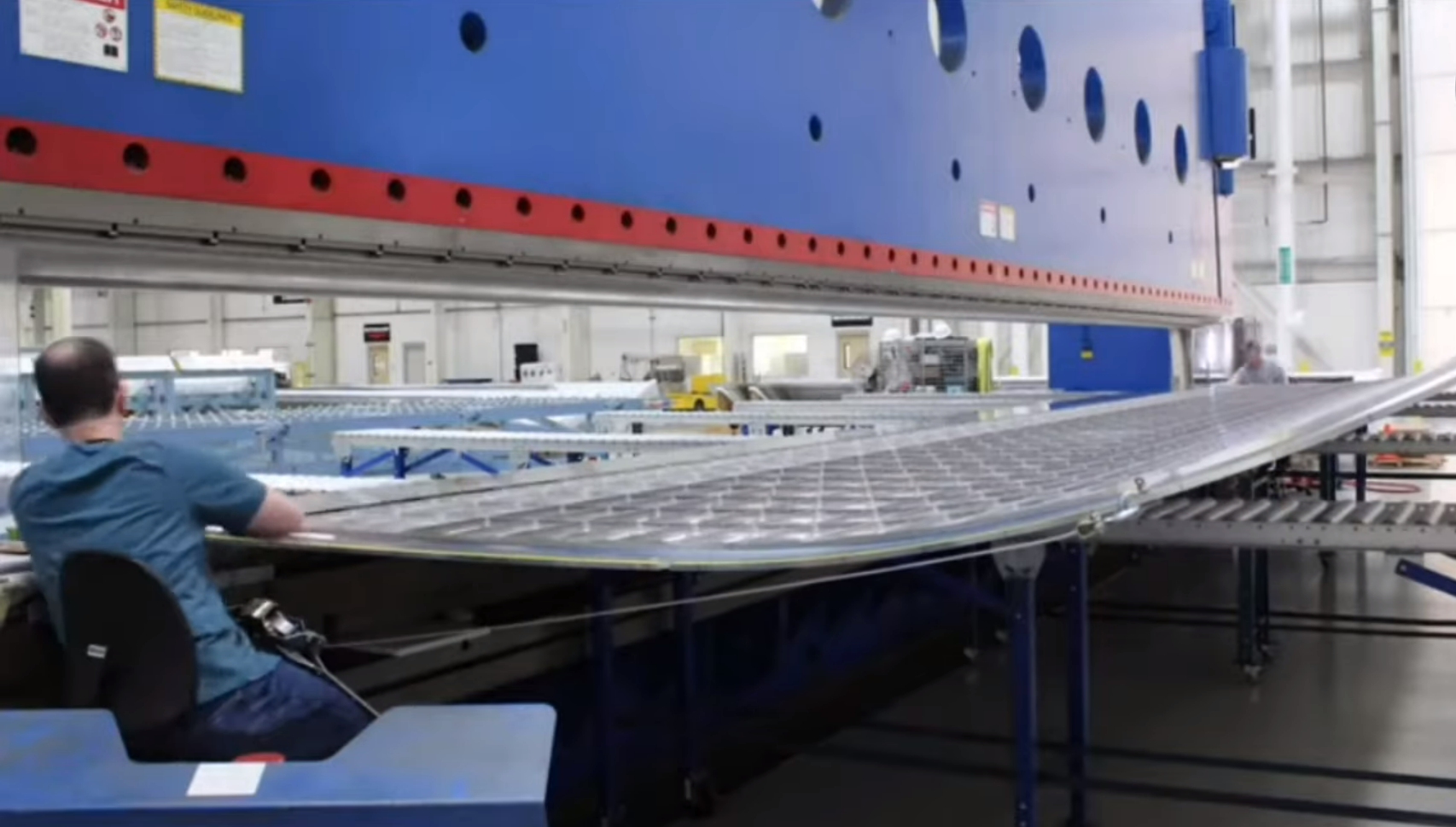
Disadvantages of using aluminum alloys
While aluminum alloys are versatile materials that offer numerous advantages to the aerospace industry, it also has its disadvantages. For instance, aluminum alloys are susceptible to fatigue fractures and notch sensitivity, especially under fluctuating stresses. Engineers must conduct periodic checks and maintenance procedures to ensure the safety and reliability of the aircraft.
Future of aluminum alloys in aerospace
The future of aluminum alloys in aerospace is promising. With the increasing demand for sustainable and eco-friendly aircraft, aluminum alloys will play a significant role in this transition. Aluminum alloys are recyclable, and they can undergo the recycling process with minimal changes in the quality. It is also more cost-effective than using virgin material in manufacturing aircraft.
Overall, aluminum alloys contribute significantly to the aerospace industry and will continue to be vital materials in airplane manufacturing.
FAQ
Can aluminum survive in space?
Aluminum can definitely survive in space. The material is light and durable, making it an ideal choice for many spacecraft components. While there are certain challenges that need to be managed when using aluminum in space such as the extreme temperature fluctuations and exposure to space radiation, it still remains a reliable and cost-effective material. With ongoing advancements in materials science, we can expect to see even better protection and performance from aluminum in space in the years to come.
Does metal decompose in space?
The idea that metal decomposes in space is far from the truth. In fact, when exposed to the space environment, metallic materials are relatively stable and can be used for spacecraft and other equipment. The combination of all the factors such as radiation, solar wind, and temperature extremes can pose a threat to metallic materials’ stability, but adequate protection can resist these stresses. The use of metallic materials for space exploration, construction, and missions is an important aspect that is continually reinventing our understanding of the universe.
How abundant is aluminum in space?
Aluminum may not be as flashy or valuable as gold or silver, but it’s definitely a valuable element in space. Whether you’re interested in the science behind nuclear fusion or the properties of metals in space, aluminum is definitely an element that’s worth learning more about. Who knows, maybe one day we’ll even be mining it from asteroids to use here on Earth. [2]
Can aluminum be used forever?
Aluminum’s properties make it a valuable resource that has near-endless possibilities for use. Its strength-to-weight ratio, corrosion resistance, and recyclability make it a sustainable option for many industries. From transportation and construction to consumer electronics and healthcare, aluminum’s versatility has helped shape our modern world. With its endless possibilities, it’s clear that aluminum will continue to be an essential material for many years to come. The world is always changing and evolving, but with aluminum, we have a material that will continue to meet our needs.
What is the hardest metal in space?
Metals such as Chromium, Tungsten, Carbon, and Titanium are among the hardest known substances in the universe. From high-temperature electronics to spacecraft and satellites, these metals have applications in many different industries. The search for metals that are even harder and more robust than these metals continues, and we can only imagine what new materials we will discover in the future.
Is aluminum good for the planet?
Aluminum can have significant environmental impacts throughout its life cycle, from production to disposal. However, when used and recycled responsibly, aluminum can also be a relatively environmentally friendly material. Recycling and reusing aluminum products reduce energy use, carbon emissions, and natural resources consumption. Additionally, using efficient manufacturing processes, optimizing recycling facilities’ locations, and ensuring responsible disposal practices can go a long way in reducing aluminum’s environmental footprint. As consumers, we can make a difference by choosing aluminum products made from recycled aluminum and disposing of aluminum products in a manner that won’t harm the environment.
Useful Video: Advanced Aluminum Alloys for Aerospace Applications
Conclusions
In conclusion, aluminum is the unsung hero of space exploration. Its unique properties, such as its ability to reflect radiation, dissipate static electricity, conduct heat, and resist corrosion, make it an ideal material for spacecraft. We wouldn’t have been able to achieve what we have so far in space exploration if we didn’t have this amazing metal. So the next time you gaze up at the stars, remember that aluminum is up there, silently doing its job to support our quest for knowledge about the universe.
References:
- https://en.wikipedia.org/wiki/Corrosion_in_space#:~:text=Different%20materials%20resist%20corrosion%20in,spacecraft%20from%20the%20harsh%20environment.
- https://aaluminum.com/blog/what-happens-to-aluminum-in-space/
- https://www.thomasnet.com/insights/aluminum-alloys-in-the-aerospace-industry/

